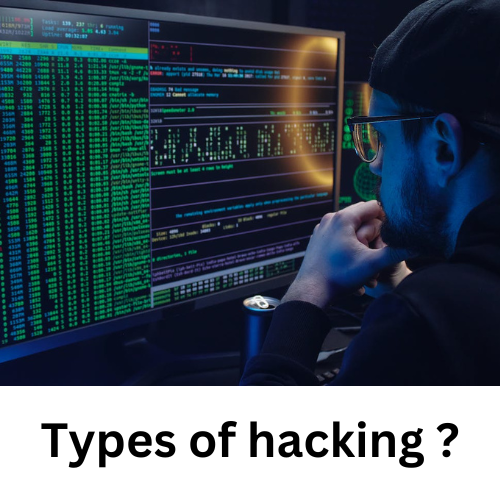Ethical hacking, also known as penetration testing or white-hat hacking, refers to the practice of intentionally probing computer systems, networks, or applications for security vulnerabilities. The primary goal of ethical hacking is to identify and address potential weaknesses before malicious hackers can exploit them.
Ethical hackers, often referred to as “white-hat hackers,” use their skills and knowledge to assess the security posture of a system or network. They employ various tools and techniques to simulate potential cyberattacks and discover vulnerabilities that could be exploited by malicious actors. By identifying these weaknesses, organizations can take proactive measures to strengthen their security and protect sensitive information.

Ethical hacking is conducted with the explicit permission of the system owner or organization being tested. It is a legitimate and essential part of cybersecurity efforts, helping businesses and institutions enhance their defenses against cyber threats. Ethical hackers typically follow a code of conduct and ethical guidelines to ensure that their activities are lawful and responsible.
Certified Ethical Hackers (CEH) are professionals who have undergone formal training and certification to perform ethical hacking tasks. They play a crucial role in the ongoing battle to secure digital systems and protect against cyber threats.
Types of Ethical hacking :
Hacking can be categorized into different types based on the intent and activities of the individuals involved. Here are some common types of hacking:

- White Hat Hacking: Ethical hackers or security professionals who use their skills to help organizations identify and fix security vulnerabilities. Their goal is to improve security.
- Black Hat Hacking: Malicious hackers who exploit vulnerabilities for personal gain, causing harm to individuals, organizations, or systems. Black hat hackers engage in illegal activities, such as stealing data, spreading malware, or conducting cyber attacks.
- Grey Hat Hacking: Hackers who fall between white hat and black hat categories. They may hack without explicit permission, but with good intentions. Grey hat hackers may identify and disclose vulnerabilities without causing harm but without proper authorization.
- Hacktivism: Hacking activities carried out for political, social, or environmental causes. Hacktivists use their skills to promote a particular agenda, often through defacement of websites, data breaches, or disruption of services.
- Script Kiddie: Individuals with limited technical skills who use pre-written scripts or tools to launch attacks. Script kiddies typically don’t have a deep understanding of the technology and rely on automated tools to carry out attacks.
- Phreaking: Hacking and manipulation of telecommunications systems, often involving unauthorized access to phone networks, voicemail, or other communication services.
- Social Engineering: Manipulating individuals to divulge confidential information, such as passwords or sensitive data. This type of hacking exploits human psychology rather than technical vulnerabilities.
- Cyber Espionage: State-sponsored or corporate-sponsored hacking activities aimed at gathering intelligence, stealing trade secrets, or monitoring the activities of individuals or organizations.
- Distributed Denial of Service (DDoS): Overloading a network, service, or website with a flood of traffic to disrupt normal functioning. DDoS attacks are often carried out by botnets.
- Physical Hacking: Gaining unauthorized access to physical systems, buildings, or devices through methods like lock picking, bypassing security measures, or tampering with hardware.
It’s important to note that while ethical hacking is conducted with legal and responsible intentions, other forms of hacking, especially those categorized as black hat hacking, are illegal and can lead to severe legal consequences. Cybersecurity professionals and organizations focus on defending against various hacking techniques to safeguard information and systems from unauthorized access and exploitation.
Also Free course chek now :
ca rachna rande stock market course free download !
Mahatmaji technical all course free download || youtube…!
How To Download This Course:
सबसे pahle niche link दिया है usmein chek kar lena ki कोर्स hai ya nahi.Copyright आगया ho gaya hoga to link नही khuliga तो ye karna है.
Whatsapp ग्रुप join ka लिन्क bhi he apko whatsapp Group me जॉइन kar lo aur jo course फ्री चाहिए vo बनाता है.apko vo कोर्स फ़्री mein provide kara दुगाा.
♻️Share And Support us♻️
Course Teacher : none
Course Language : English
Course Size : around 5GB+
Course : Ethical hacking
Click For Download :

Join To Our Telegram Group :

